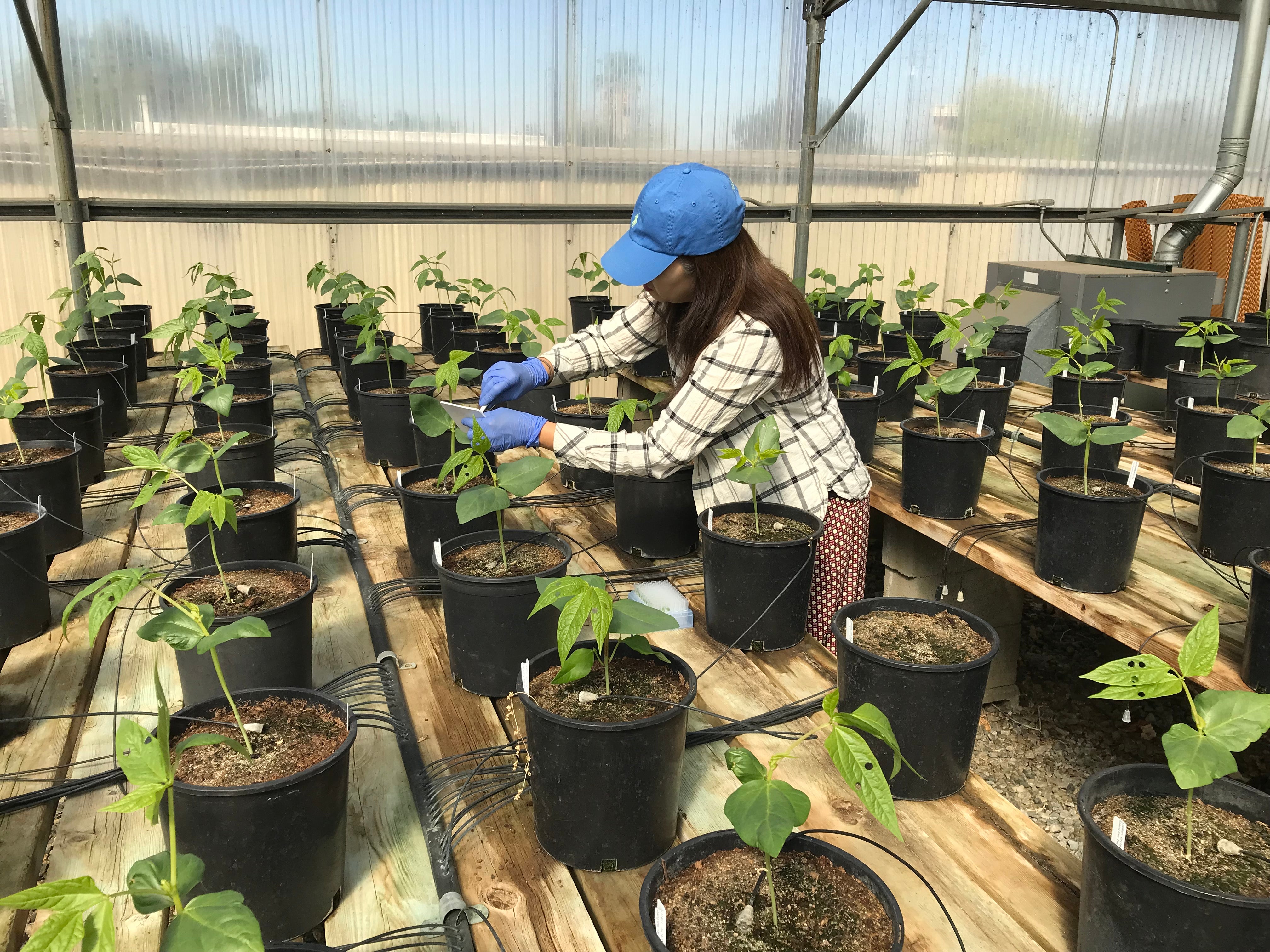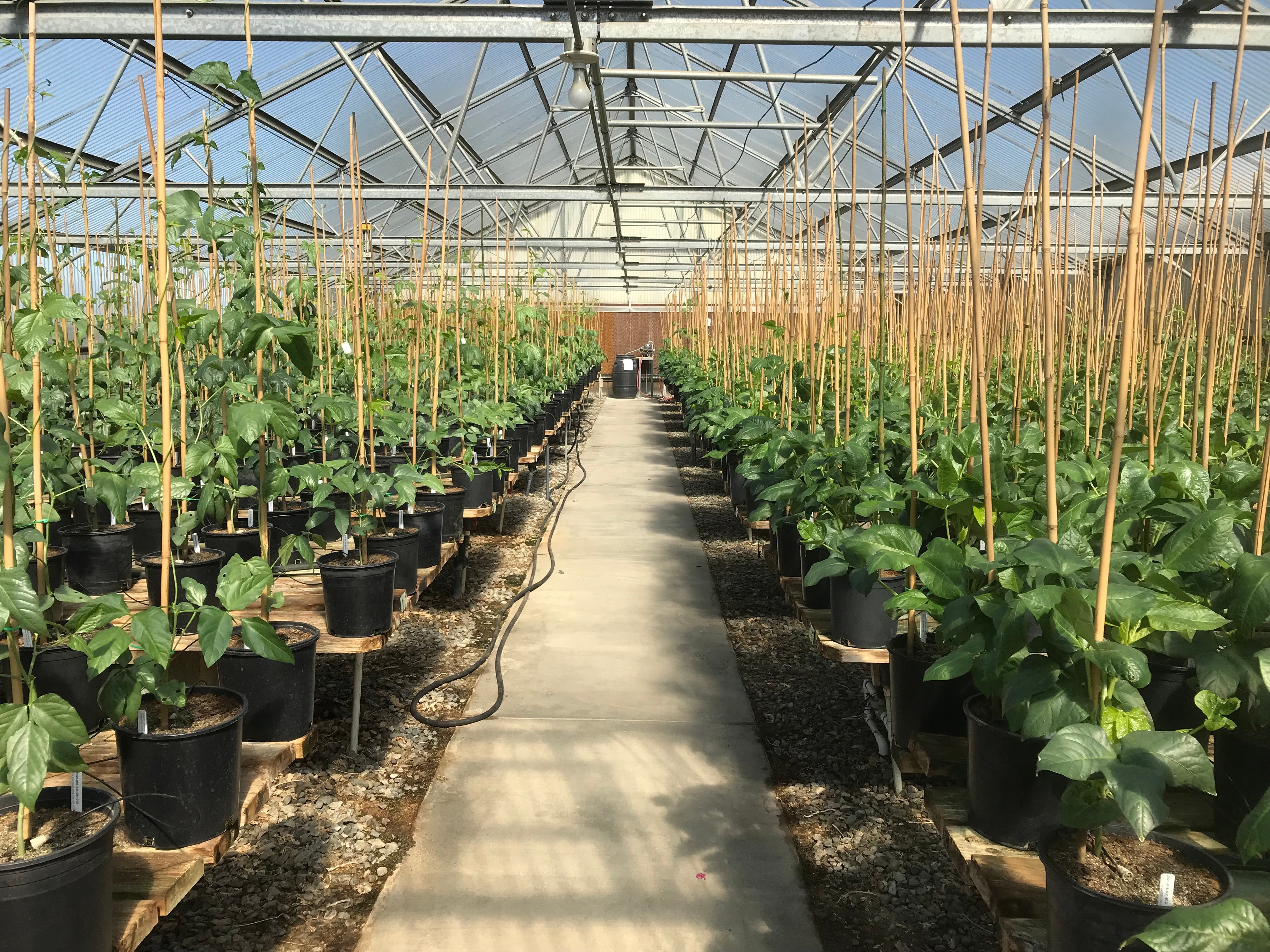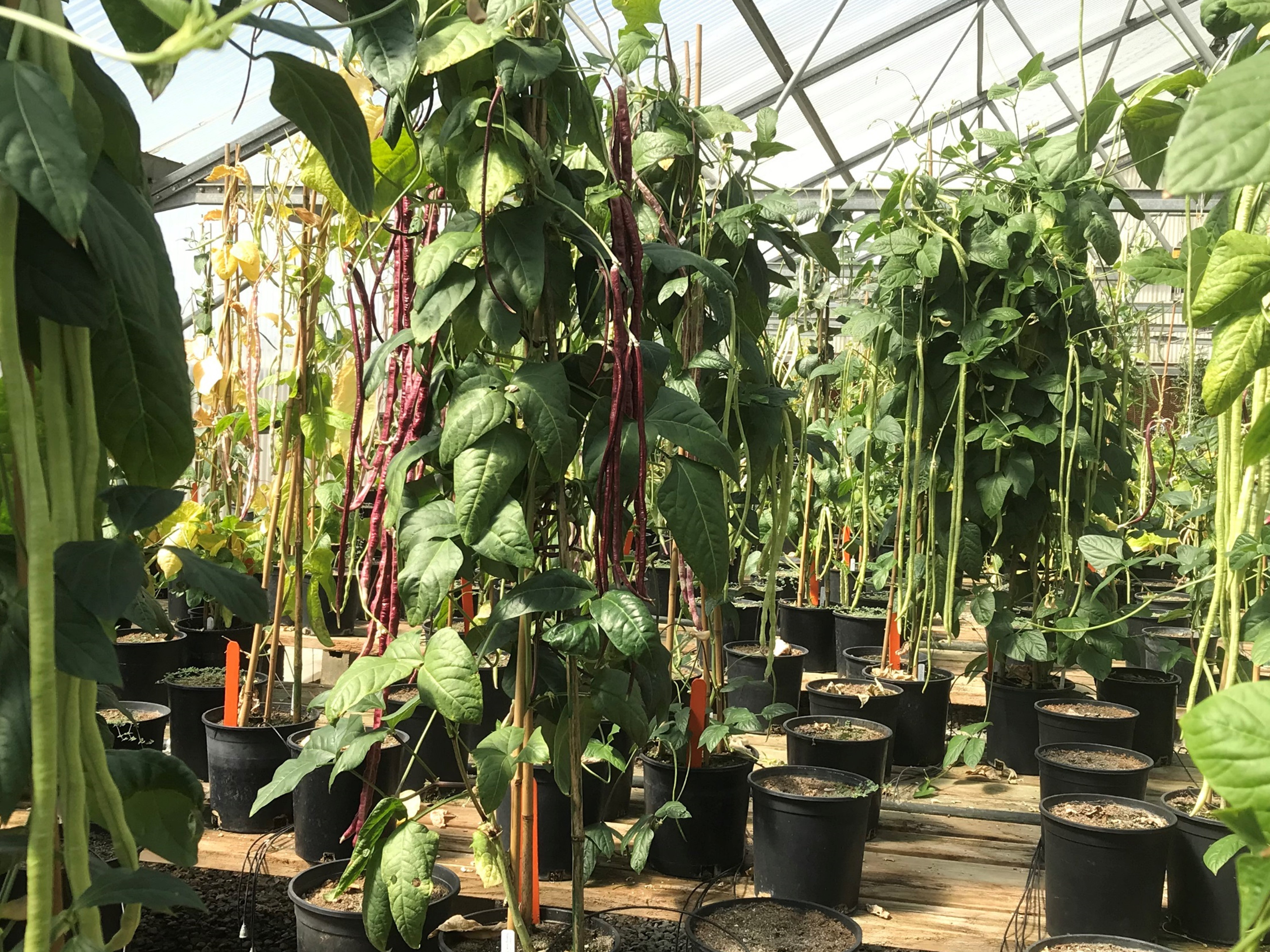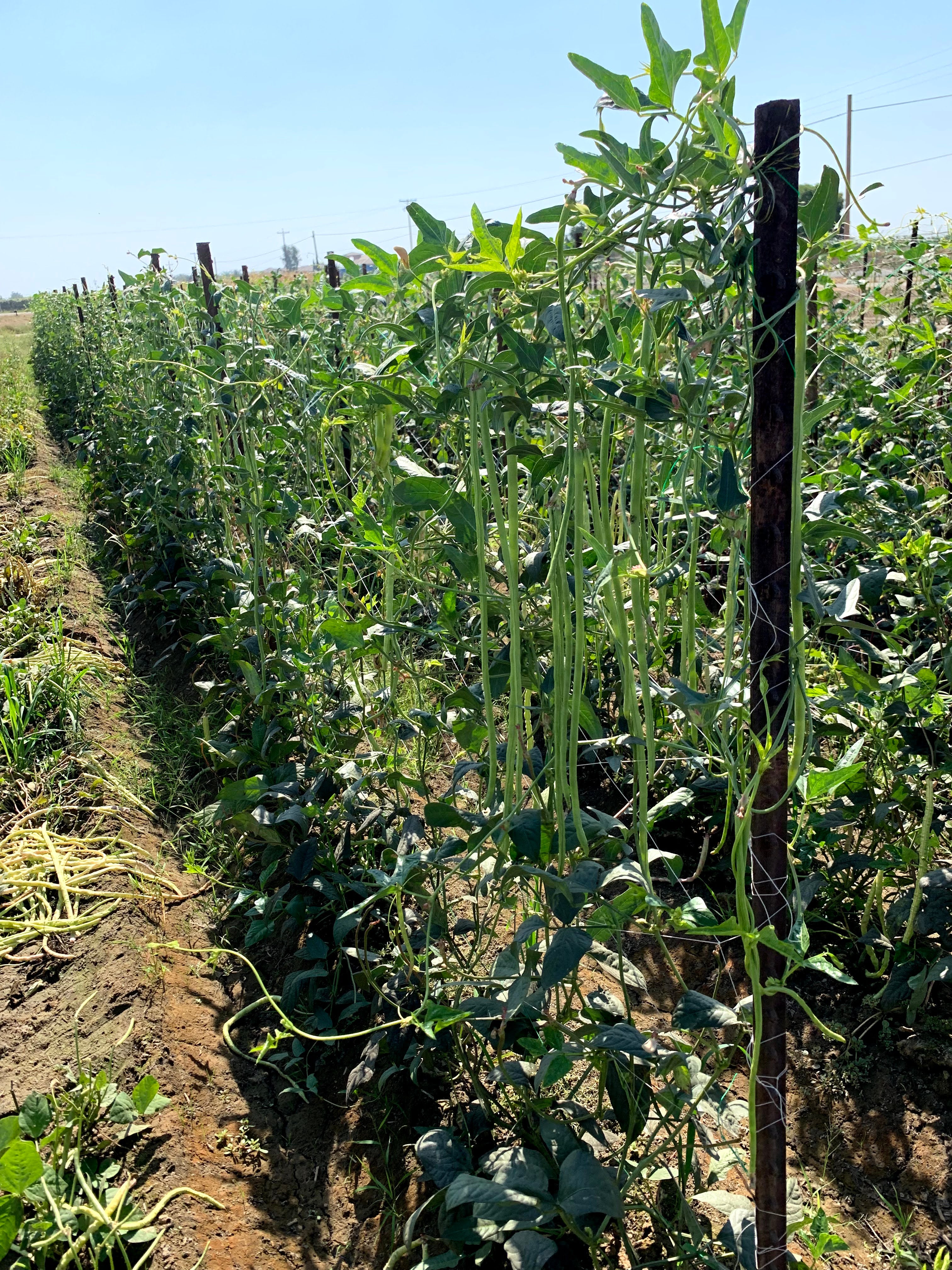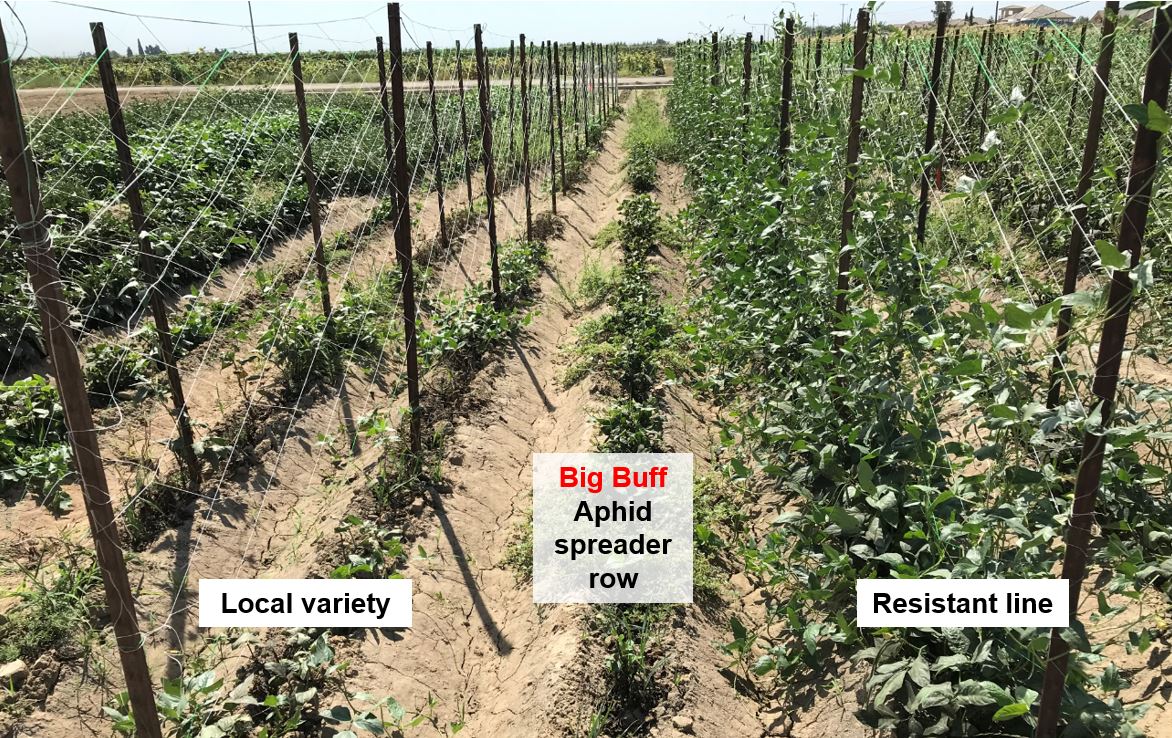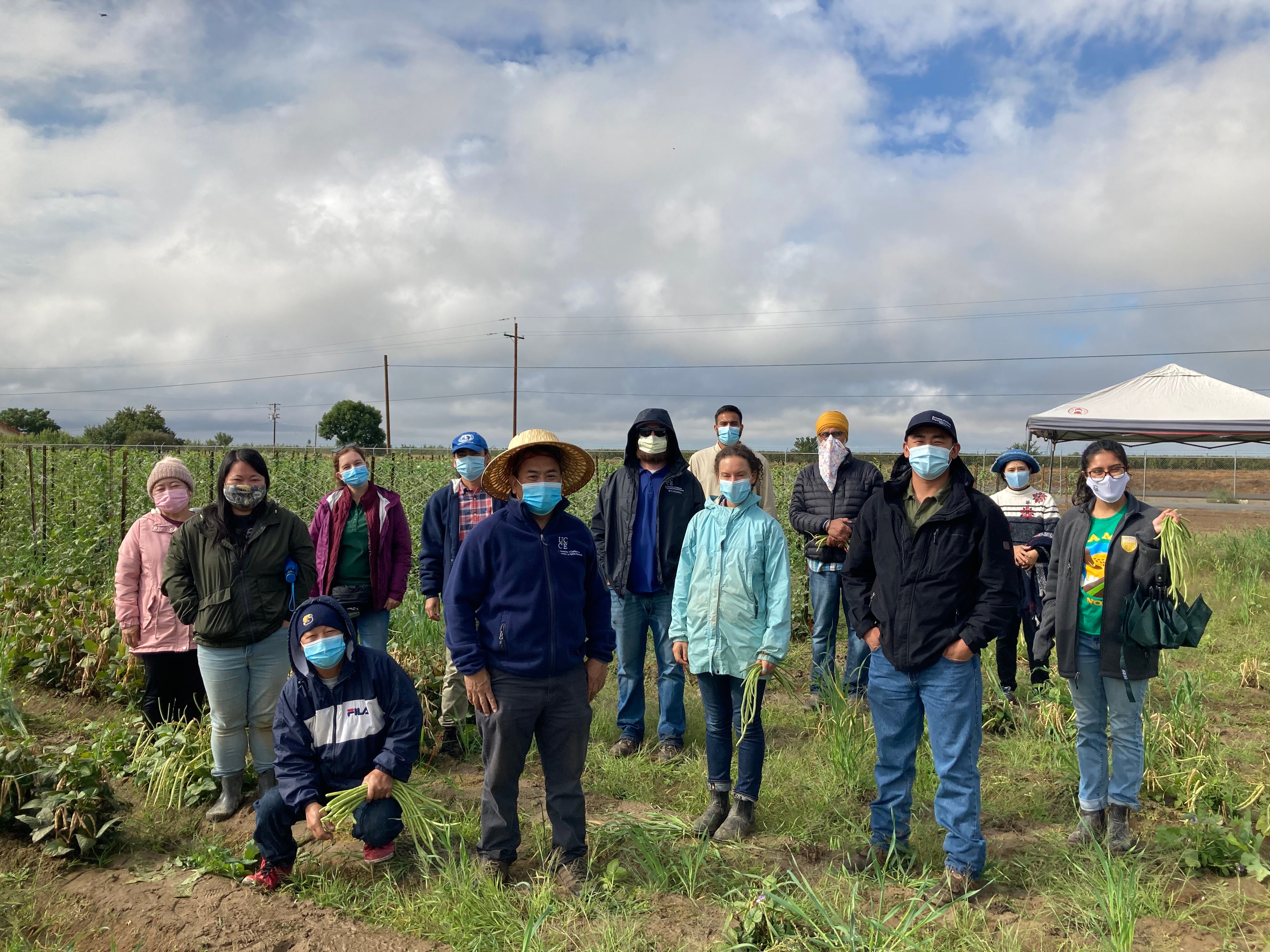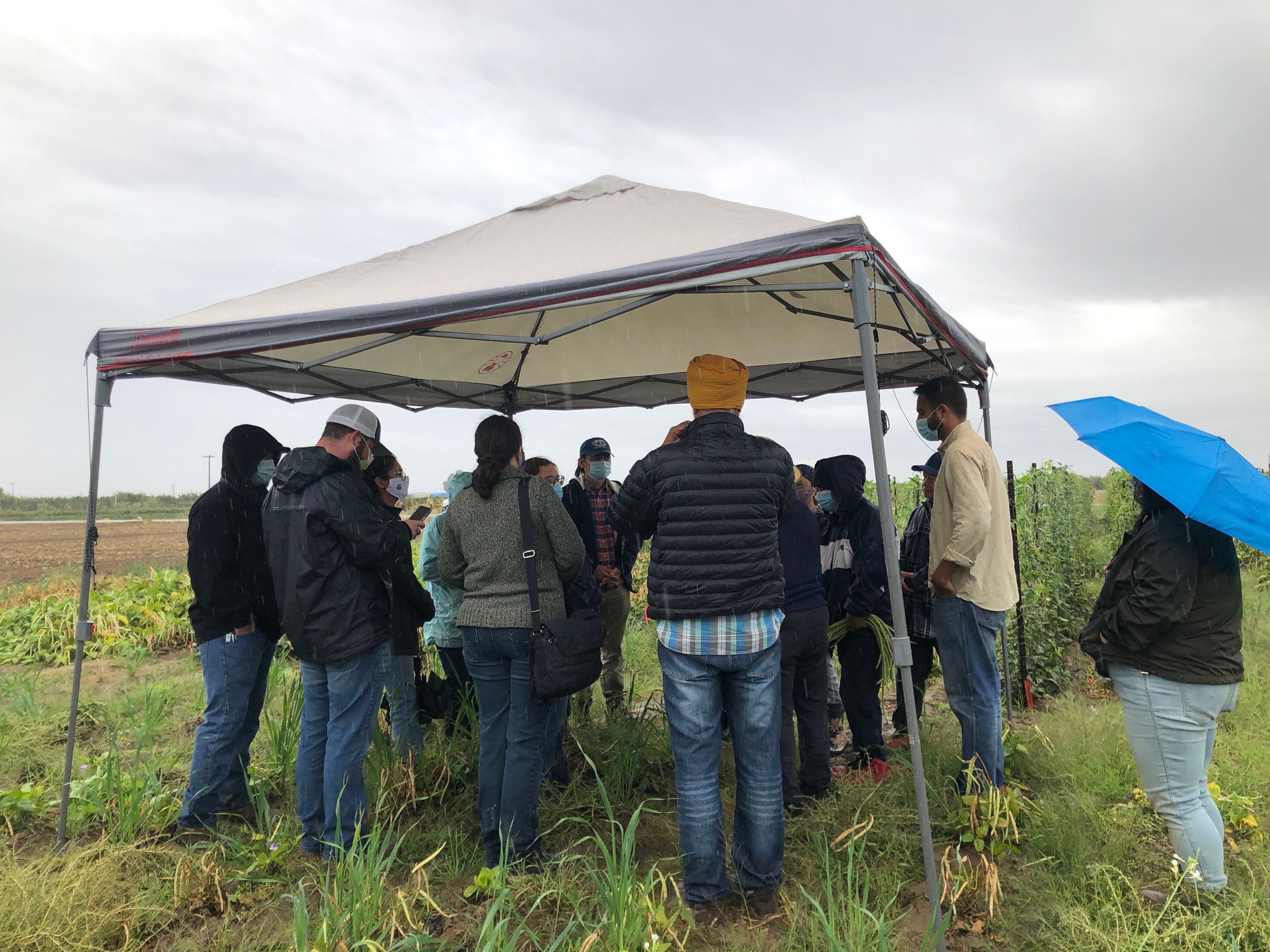We are implementing modern plant breeding methodologies and extension activities to develop resistant varieties. Sources of natural resistance found in African cowpea germplasm and existing knowledge of marker-trait associations for aphid and root-knot nematode resistance are being applied in marker-assisted breeding. Local cultivars with stacked resistance genes are being developed. Novel resistant bush-type long bean varieties are also being developed to enable scaling up production and improving nematode management in commercial farming. The improved germplasm is evaluated by controlled experiments along with outreach activities to enable adoption.
Marker-Assisted BreedingFigure 1. Hyun Park Kang punching leaf samples for DNA marker genotyping. Photo credit: BL Huynh
Figure 2. Breeding populations grown at high density prior to marker-based selection. Photo credit: BL Huynh
Figure 3. Selected desirable plants remain following removal of undesirable plants determined by DNA marker genotyping. Photo credit: BL Huynh |
Evaluation ExperimentationFigure 4. A field-based evaluation trial for new resistant breeding lines in a 'hotspot' location for aphid at the UC Kearney Agricultural Research Extension Center, Parlier, CA in 2021. No inorganic pesticide was applied during the course of experiment. Photo credit: BL Huynh
Figure 5. The highly susceptible cultivar Big Buff was planted as aphid spreader rows. Plants are shown at 58 days after planting when aphids killed most plants of Big Buff and local varieties while the resistant lines grew and reproduced normally. Photo credit: BL Huynh |
Educational OutreachFigure 6. A grower meeting at the UC Kearney Agricultural Research Extension Center, Parlier, CA in 2021. Photo credit: R Dahlquist-Willard
Figure 7. Plant Breeder Bao-Lam Huynh introducing the evaluation trial and resistance breeding methodologies. Photo credit: T Duong |
